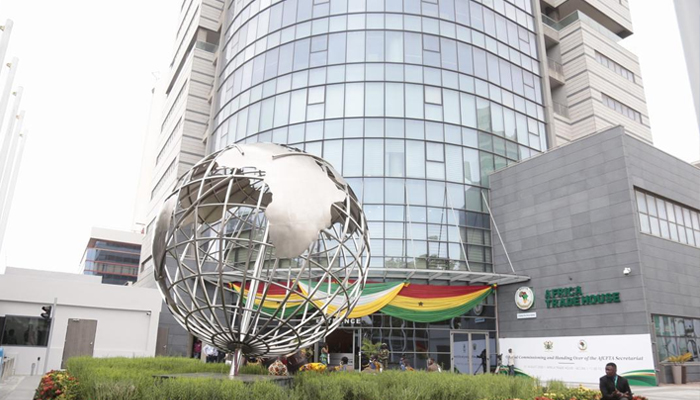
The AfCFTA story that made Graphic Business great is wake-up call
Your Graphic Business, the business and finance newspaper in the stable of the Graphic Communications Group Ltd, has done it again.
One of our dependable senior reporters, Emmanuel Bruce, was at the weekend adjudged the Best Business and Economic Journalist at the 28th Ghana Journalists Association Awards.
His in-depth and well-researched piece on the state of the African Continent Free Trade Agreement (AfCFTA), three years after it was launched, did not only shed light on the crucial issue about African economic development but also underscored the vital role of the press in holding our institutions accountable when they fail to live up to expectation.
Using simple language backed with facts, Mr Bruce's award-winning piece painted a sobering picture of AfCFTA's progress or the lack thereof.
What was envisioned as a $4 trillion market opportunity poised to revolutionise intra-African trade and position the continent as a formidable global economic player now teeters on the brink of becoming yet another grand African vision mired in bureaucratic quicksand.
The story revealed that out of the 44 countries that have ratified the agreement, a mere eight have submitted their tariff guidelines – a fundamental prerequisite for the implementation of the trade agreement.
This glaring disparity between the initial enthusiasm that saw 14 countries sign up instantly in 2019 and the current state of affairs raises serious questions about the true commitment of African nations to this transformative initiative.
The story went beyond reporting mere numbers, delving into the complexities of international trade negotiations and the real-world implications of bureaucratic delays.
His work also brought to the fore a fundamental truth: that the potential of AfCFTA cannot be overstated, neither can the challenges it faces.
The Graphic Business unequivocally believes that with a market size of 1.4 billion people, AfCFTA promises to break down long-standing trade barriers, foster economic integration and catalyse industrial development across the continent.
However, as the story highlighted, the sluggish progress in submitting tariff guidelines threatens to undermine these lofty goals, leaving the $4 trillion potential market untapped and millions of Africans waiting for the promised economic benefits in limbo.
To the paper, the delay is not merely a matter of missing paperwork; it represents a fundamental failure in translating political will into concrete action, a sad observation about Africa. It questions the commitment of its leaders when it comes to implementing very critical policies that have the potential to transform the continent and make their people better off.
We at the Graphic Business believe that the story serves as a wake-up call to the African Union and member states that the credibility of continental initiatives hangs in the balance.
The paper also strongly believes that each passing day of inaction erodes the confidence in Africa's ability to unite for its economic interest and weakens its position in the global economic order.
The introduction of the Guided Trade Initiative in October 2022, involving seven countries, offers a glimmer of hope.
The story covers in detail the successful exports by four Ghanaian companies to Cameroon and Egypt under this initiative. That aspect of the story was to clearly demonstrate the tangible benefits that AfCFTA can deliver if well implemented.
However, these isolated successes only serve to highlight the vast potential being left unrealised due to widespread inaction.
The nuanced reporting on the challenges faced even within this limited initiative, such as customs clearance issues, underscores the need for comprehensive preparation and coordination across all participating nations.
These teething problems, while not insurmountable, emphasise the complexity of implementing such a wide-reaching agreement and the need for all stakeholders to be fully prepared and aligned.
The Graphic Business is of the view that African leaders must move beyond rhetoric and demonstrate their commitment through concrete steps which include accelerated submission of tariff guidelines.
Countries that have ratified the agreement but have not submitted their tariff schedules must do so immediately.
Governments must also intensify efforts to educate their private sector players on the AfCFTA opportunities, while member states urgently align their customs procedures with AfCFTA requirements. Thumbs up, Mr Bruce.